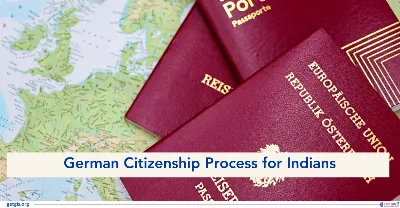Canada S1 Visa vs SW1 Visa: Which is Right for Your Immigration in 2026?
Updated On
-
Copy link
Compare the Canada S1 visa vs SW1 visa to choose the right option for your studies. Learn about eligibility criteria, required documents, and the step-by-step application process for international students.
Limited-time offer : Access a free 10-Day IELTS study plan curated for you

Table of Contents
- Canada S-1 vs SW-1 Visas: Understanding the Visa Types and Their Meaning
- Canada S-1 vs SW-1 Visas: Key Differences
- Eligibility Criteria for S-1 and SW-1 Visa Canada
- Documents Required for the S-1 and SW-1 Visa Application
- Application Process for S-1 and SW-1 Visas in Canada
- Application Fees for S1 and SW1 Visa Canada
- Processing Time for S-1 and SW-1 Visa Canada
- Validity for Canada's S-1 and SW-1 Visas for International Students
For international students planning to pursue education in Canada, it is crucial to be well-versed in the differences between the Canada S1 and SW1 visas. Both visa types facilitate international students' entry into Canada. However, the difference lies in the type of programmes they cater to and the permissions they grant.
In this article, we will delve into the details of Canada S1 vs SW1 visas, shedding light on their eligibility requirements, application processes, unique benefits, and more.
Canada S-1 vs SW-1 Visas: Understanding the Visa Types and Their Meaning
What are the S-1 and SW-1 Visa? International students when applying for a Canada student visa, need to check through the student visa options available. SW1 visa and S1 visa are the most sought after visa, each tailored to specific academic pursuits and requirements.
- SW-1 Visa: This Study Work visa is designated for students who are required to participate in compulsory co-op programs as part of their study permit. If your study permit includes mandatory co-op, you will be granted an SW-1 visa. With the SW-1 visa, you can work in Canada as a student without the need for an additional co-op work permit.
- S-1 Visa: The Study visa (S-1 visa) is issued to students with optional internships included in their study permit. However, it does not grant immediate permission to work in Canada as a student. To work in Canada with an S-1 visa, you will need to apply for a co-op work permit, which does not incur any additional fees.
The difference between the S-1 and SW-1 visas is minimal, so there is no need for concern regarding the type of visa issued, as both ultimately facilitate employment opportunities for students in Canada.
Canada S-1 vs SW-1 Visas: Key Differences
S1 and SW1 visas are two categories of Canadian student visas. The main distinction between them is that the S1 visa is typically granted to students with optional internships, and it requires a separate co-op work permit for employment.
In contrast, the SW1 visa is for students with mandatory co-op programs in Canada, granting immediate work rights during co-op periods without the need for an additional work permit.
|
Aspect |
SW-1 Visa |
S-1 Visa |
|
Purpose |
For students enrolled in programs with mandatory co-op components |
For students pursuing programs with optional internships |
|
Co-op Work |
Includes work rights during the co-op period |
Requires a separate application for a co-op work permit |
|
Validity |
Typically valid for up to 4 years |
Typically valid for up to 3 years |
|
Immediate Work Rights |
Grants immediate work rights in Canada |
Does not provide immediate work rights in Canada |
|
Co-op Work Permit Requirement |
Not required |
Required |
|
Additional Fees for Co-op Work Permit |
No additional fees |
No additional fees |
|
Example Scenario |
Engineering students with mandatory co-op |
Business students with optional internships |
Eligibility Criteria for S-1 and SW-1 Visa Canada
The eligibility criteria for S1 and SW1 visas Canada are structured to ensure the prospective applicants meet the necessary qualifications and requirements to pursue their education in Canadian land.
To qualify to the student visa in Canada applicants would need to meet the following eligibility criteria
Enroll in a designated learning institution
- Your chosen designated learning institution (DLI) for international students should be on the list of DLIs with an approved COVID-19 readiness plan
- Provide a Provincial Attestation Letter (PAL) for Graduate students. (Masters and PhD students are exempted from the PAL requirement in 2026)
- Demonstrate the financial capacity to support themselves and their families while in Canada.
- Commit to adhering to Canadian laws and regulations
- Maintain a clean criminal record
- Provide compelling evidence to an immigration officer that they intend to depart Canada upon visa expiration
Additional Requirements for SW1 Visa for Canada
The specific requirements to meet when applying for SW-1 visa in Canada includes the following:
- It is mandatory to work to fulfill the requirements of your program
- The college must explicitly state in your admission letter that work experience is a requirement for program completion
- The Co-op placement or internship should not exceed 50% of the total duration of your study program.
Documents Required for the S-1 and SW-1 Visa Application
Now that you have learned about the eligibility requirements for SW1 and S1 visas let us further explore the list of documents needed to apply for Canadian S-1 or SW-1 visas, which include:
- An Acceptance Letter from a Designated Learning Institution (DLI)
- Provincial Attestation Letter (PAL) (if applicable).
- A Valid Passport
- Proof of funds for Canada, minimum of CAD 22,895 (outside Quebec) for living expenses, plus your first year of tuition. For Quebec, the requirement is CAD 24,617.
- Supplementary documents, which may include:
- Custodian report
- Medical tests required for Canada Immigration
- Police clearance Certificate
- Proof of identity
Application Process for S-1 and SW-1 Visas in Canada
So far we have mapped the differences in eligibility and requirements for the Canada student visa S1 and SW1. Next in the row is to understand the application process for the student visas. Canada to ensure the convenience of applicants offers an online and offline modes of application, the process includes:
- Step 1: Verify your eligibility for a Canada student visa
- Step 2: Assemble the required document checklist
- Step 3: Complete the online visa application
- Step 4: Await the application status update
- Step 5: Travel to Canada for your studies
Application Fees for S1 and SW1 Visa Canada
Canada student visa fees for S1 and SW1 visas is same i.e. CAD 150 (per person including extensions). Canada study permit applicants would also need to go through the Canada biometric appointment process, and the cost of biometrics per person is CAD 85.
Also Read: Canada Visa Fees.
Processing Time for S-1 and SW-1 Visa Canada
In 2026, fortunately, the processing time has seen a slight decline due to streamlined IRCC systems.
From India: Averaging 3 to 4 weeks.
PhD Students: Eligible for a 2-week priority processing.
Inside Canada: Approx. 7 weeks.
Validity for Canada's S-1 and SW-1 Visas for International Students
The S-1 visa offers a maximum validity period for a study program lus 90 days (often up to 3 years for undergraduate degrees) and allows the holder to enroll in any Canadian educational institution, provided they have received acceptance from a designated learning institution (DLI).
For SW- 1 visa, it usually granted for up to 4 years to accommodate the additional co-op terms. Like the S1, it can be extended if your studies are delayed.
Factors Affecting S1 and SW 1 Visa Canada Processing Time
Certain factors can influence how long it takes to process an SW1 visa application in Canada. The type of visa category, the applicant's country of residence, the accuracy and completeness of the application, and the duration of background and security checks all play a role in determining the processing time for the SW1 visa.
- Visa Category - The processing time for the SW1 visa varies according to the specific visa category. Typically, student visas take around 3-5 weeks to process
- Country of Residence - The processing time also hinges on the applicant's country of residence. Some nations may experience higher application volumes, placing additional demands on immigration authorities
- Application Accuracy - Timely processing depends on the submission of a precise and comprehensive visa application
- Ongoing Backlogs affect Canada Visa for Studies.
- Background and Security Screening - Background and security checks can sometimes introduce delays in the SW1 visa processing for Canada
Secure Your Canadian S1 and SW1 Visas Today with GetGIS!
The S1 visa and SW1 visas cater to different academic needs with the SW1 visa designated for programs requiring mandatory work components and the S1 visa is more suitable for General Academic Studies. Understanding their distinctions help ensure you choose the right visa for your educational goals in Canada. Proper preparation and adherence to requirements are key to a successful application process
If you are also an aspirant interested in exploring opportunities in Canada, reach out to GetGIS study abroad assistance. Our team provides you tailor made guidance to meet all your Canada student visa application requirements for your assured university admission and travel to Canada.
Also Read:
Limited-time offer : Access a free 10-Day IELTS study plan curated for you

Frequently Asked Questions
Is Part-Time Employment Allowed on an S1 Visa?
Is It Possible to Extend the Validity of S-1 and SW-1 Visas?
What is the maximum validity period of the SW1 visa in Canada?
What is the S1 visa category in Canada?
Is It Possible to Enter Canada for Work Without IELTS?





